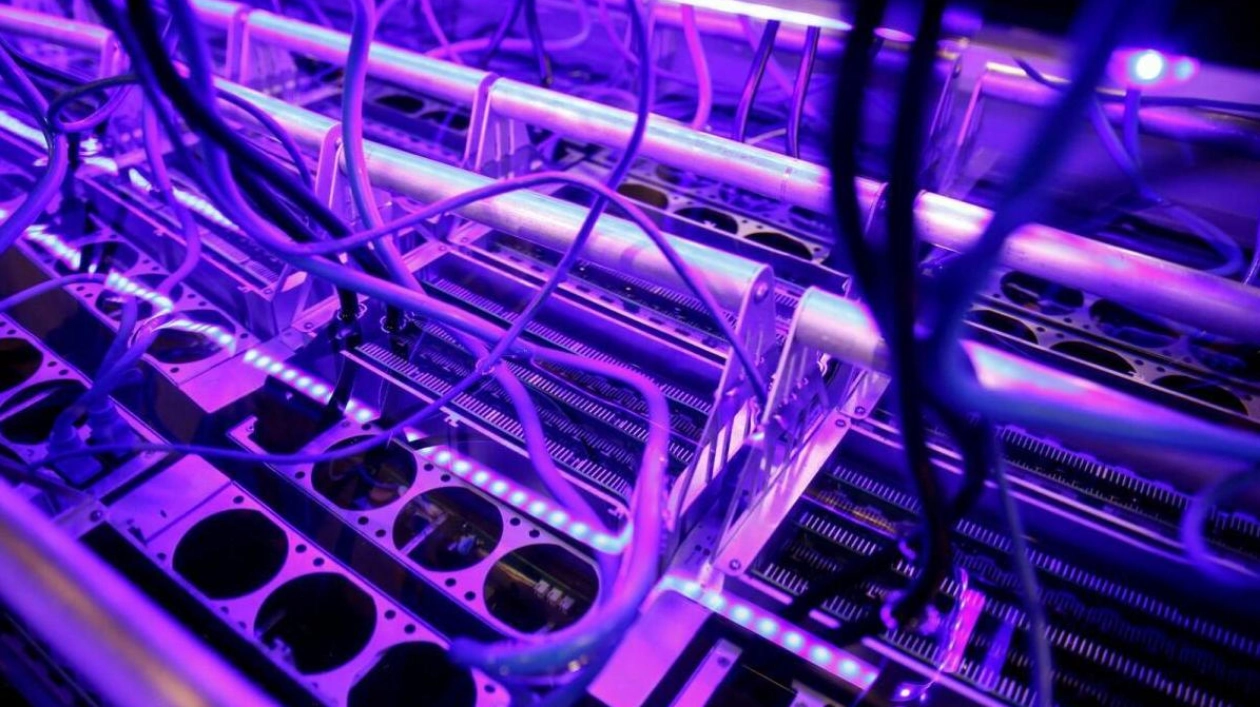US tech firms are aggressively acquiring energy assets from bitcoin miners as they compete to secure a dwindling supply of electricity for their rapidly expanding artificial intelligence and cloud computing data centers. These data centers are fueling the fastest growth in US power demand since the millennium began, surpassing grid expansions and forcing major tech companies like Amazon and Microsoft to hunt for large amounts of electricity.
The scramble for electricity is disrupting the energy-intensive cryptocurrency mining industry. Some miners are profiting handsomely by leasing or selling their power-connected infrastructure and sites to tech companies, while others are losing access to the electricity they need to stay in business. "The AI battle for dominance is a battle being fought by the world's largest and best-capitalized companies, and they care deeply about winning," said Greg Beard, CEO of Stronghold Digital Mining, a publicly-traded bitcoin mining company. "Do they care about what they pay for power? Probably not."
Data centers could consume up to nine percent of total US electricity generation by the end of the decade, more than doubling their current consumption, according to the Electric Power Research Institute. Currently, data centers account for about one to 1.3 percent of global electricity consumption, compared to crypto mining's roughly 0.4 percent, according to the International Energy Agency. This gap is expected to widen, with analysts predicting that 20 percent of bitcoin miner power capacity will shift to AI by the end of 2027.
Over the past year, bitcoin miners and AI data center owners have increasingly competed for the same power assets and contracts, according to executives from over half-dozen publicly traded US crypto mining companies. Marathon Digital Holdings, the world's largest publicly traded bitcoin miner, was among those interested in a nuclear-powered data center owned by Talen Energy in Pennsylvania. "We are always open to discussions with anyone looking to sell a data center," Marathon said, without confirming specific interest in the site.
Amazon, with a market capitalization more than 350 times that of Marathon, purchased the center in a deal announced in March, securing enough electricity to power nearly all the homes in New Mexico. Many large miners that own land and power hookups are changing their strategies from exclusively crypto mining to offering their property and energy services to AI and cloud computing businesses. "We've received a lot of interest from companies like Amazon and Google," said Kerri Langlais, chief strategy officer of bitcoin miner TeraWulf, which has a site in upstate New York capable of up to 770 megawatts.
The frenzy of interest from tech companies in miners began in June, when crypto miner Core Scientific, fresh out of bankruptcy, announced a major agreement to lease its power-connected facilities to Nvidia-backed CoreWeave in deals estimated at over $6.7 billion over 12 years. Several miners have since announced plans to lease or act as subcontractors to develop AI data centers. New data centers, typically around 20 megawatts, are now being built up to 1,000 megawatts, but wait times to connect new power supplies in the United States can take several years.
For crypto miners with large energy assets, repurposing their operations for AI and cloud computing could increase the value of their facilities by up to five times, according to Morgan Stanley research. Buying or leasing space at a miner with at least 100 megawatts of capacity can reduce the wait time for a data center to launch by about 3.5 years, saving tech companies billions. However, the transition of electricity supplies and infrastructure from crypto miners to tech companies will not be smooth for most, if at all possible, according to several miners.
"Most bitcoin miners claiming they will move into AI don't fully understand what they're getting into," said CleanSpark CEO Zach Bradford, who plans to stick with crypto mining as his core business. About 90 percent of the country's bitcoin mines can be constructed in six to 12 months, compared to three years for a more sophisticated data center, Bradford said. These mines would need to be rebuilt to include specialized cooling structures and other infrastructure for AI or cloud computing.
The high costs of building AI data centers would be a barrier for many crypto miners, who were largely cut off from capital after a 2022 bitcoin price crash, said Sergii Gerasymovych, CEO of EZ Blockchain, which supplies equipment and services for crypto mining. This year, EZ Blockchain had a 10-megawatt project in progress with a South Carolina utility until the utility contracted for 100 megawatts with a hyperscaling AI company. Hyperscalers include the world's largest tech companies that operate massive global networks of data centers and cloud infrastructure.
While the financial details of the AI data center deal were unclear, Gerasymovych said the competing company had billions of dollars in capital. "For them, it's about speed to market, and they're just throwing money around," he said. "What is there to compete with?"






